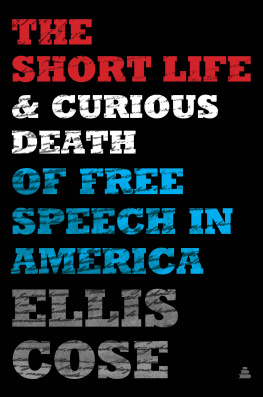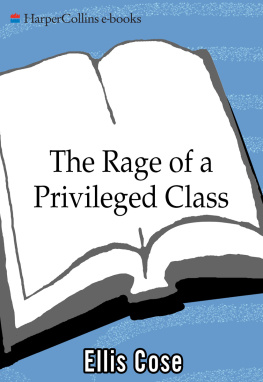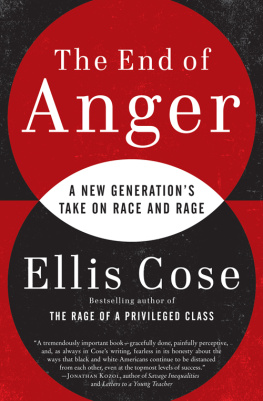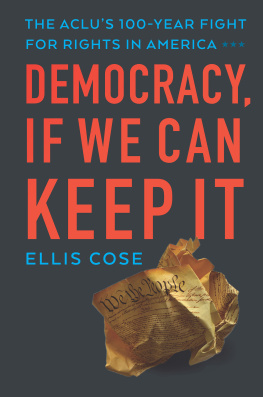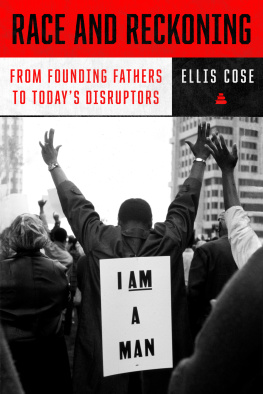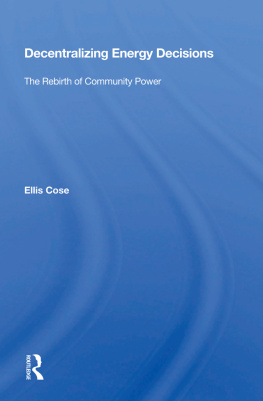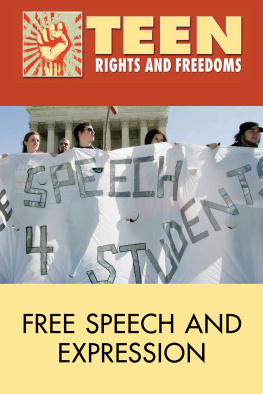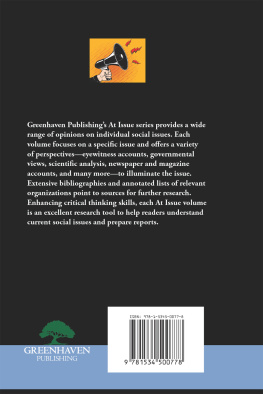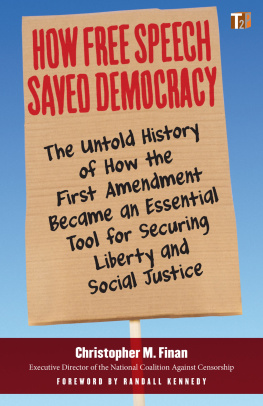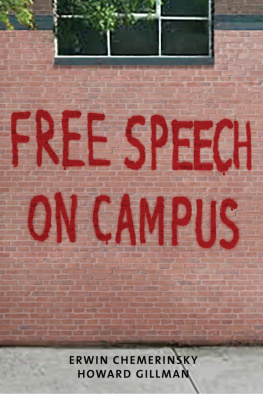No one expected their words to be enlightening or their tone harmonious. Hatred rarely comes in such flavors. It spills out as an ugly, incoherent mess infused with the rotten odor of willful ignorance. And so it was with the Nazi wannabesself-styled white supremacists determined to make their mark on the world, committed to convincing anyone who might listen that their superiority was both evident and inevitable.
The setting was downtown Charlottesville, Virginia, August 2017. Their mission was unityof like-minded hatemongers. Their leader, Jason Kessler, was a thirty-three-year-old who lived with his parents and had once supported Barack Obama. He had learned that many demographers thought whites would eventually become a minority race in the United States. That news was so unsettling that Kessler remade himself into a white-rights activist: Its one thing to have immigration, but to the point where they [nonwhites] overwhelm the host population is not right. He styled himself as a civil and human rights advocate, focused on the Caucasian demographic in the mode of Jesus Christ or Mahatma Gandhi. His Unite the Right rally, observed the Christian Science Monitor, was supposed to be the movements coming out party, an emergence from the shadows of internet chat rooms into the national spotlight.
Kessler was inspired in part by fellow University of Virginia graduate and white supremacist Richard Spencer who, in May 2017, led a band of racists in Charlottesville chanting Russia is our friend and Blood and soil, a Nazi-inspired slogan. Why they were enamored of Russia is anyones guess; I presume it had something to do with President Trump. The reason for the Nazi chant was evident; they thought it allowed them to channel the spirit of General Robert E. Lee, who had abandoned the US Army in a doomed quest to preserve race-based slavery in the South. Charlottesvilles leaders recently had voted to remove Lees statue from the downtown park that no longer carried his name. Spencer and his crew opposed that effort and everything they thought it implied, including hostility to the legacy of whiteness. What brings us together is that we are white, we are a people, we will not be replaced, Spencer told the acolytes he had summoned to Charlottesville.
The Loyal White Knights of the Ku Klux Klan were similarly motivated by the perceived threat to American whiteness. Its membersfifty strongconverged on Charlottesville that July to march around and shout White power as hundreds of counterprotesters responded with Racists go home.
How did the mad ravings of a bunch of mentally disturbed, intellectually confused, racially paranoid misfits end up spurring a national debate over the limits of free speech, the meaning of the First Amendment, and the moral obligation of the president of the United States? One reason is thatdespite Kesslers efforts to cast himself as the Martin Luther King Jr. of white rightsthe rally engendered fears of made-for-TV-scale violence.
As news of the event spread, and some sense of its size became clear, several local businesses announced they would temporarily close out of concern for the safety of their customers and employees. The University of Virginia, located in Charlottesville, asked students to stay away.
Many rally participants showed up armed with rifles and other deadly weapons (thanks to Virginias open carry laws). Indeed, even before the rallys scheduled noon start time, Kesslers congregation had ignited so much hostility and ugliness that local authorities labeled the gathering an illegal assembly and ordered participants to leave.
In the end, the racist, anti-Semitic hate-fest caused three deaths. Two of the dead were state troopers. Berke Bates and H. Jay Cullen, assigned to monitor the gathering from the sky, died when their helicopter crashed. The third victim was Heather Heyer, a thirty-two-year-old paralegal.
James Alex Fields Jr., a twenty-year-old Adolf Hitler fanatic from Ohio, killed Heyer by intentionally plowing his car into a crowd of counterprotestersinjuring some nineteen people in addition to Heyer, who died from blunt-force injury to her chest.
Following the tragedy, Donald Trump famously condemned the hatred, bigotry, and violence on many sides. His words provoked a controversy that went on for months as Trump proved incapable of criticizing the racist mob without also condemning those who opposed it. Heyers mother, Susan Bro, was so sickened by the presidents words that she refused to take his condolence call. Im sorry. After what he said about my child, Bro told CNN, and added, incredulous: I saw an actual clip of him at a press conference equating the protesters... with the KKK and the white supremacists.
James Fieldss lawyers sought mitigation by stressing his history of mental illness. A psychologist testified that he had been diagnosed with bipolar disorder at the age of six and later with schizoid personality disorder. His lawyers also delved into his childhood traumas, which included coping with the murder of his grandmother by his grandfather, who had subsequently killed himself. Jamess mental illness causes him to lose emotional and behavioral control in stressful situations, said his attorneys, who claimed he had taken himself off his meds when he was eighteen, meaning he was medically untethered when he murdered Heyer. After pleading guilty, Fields received two life sentencesone in state court and the other in federal court.
Even with Fields confined to prison, questions raised by Heyers murderand the rally that caused itreverberated. Trumps troubling insistence on calling bullying bigots very fine people was perhaps inevitable given his need to placate a base that contains more than its share of people like David Duke, the former Ku Klux Klan grand wizard who promoted the rally as an effort to take our country back and who, after Heyers murder, thanked Trump via tweet for his honesty & courage to tell the truth. Duke also tweeted, This is why WE LOVE TRUMP and WHY the FAKE NEWS MEDIA HATES TRUMP. He brings to light what the lying, Fake News Media Wont. The truth is the media covers up horrific numbers of racist hate crimes against White people!
But putting the president and his behavior aside for the moment, what about the free speech communitythe civil libertarians who successfully fought in court for Kesslers right to hold his rally in downtown Charlottesville? The city had wanted to move Kesslers parade of bigotry to another park, one farther from the heart of town that officials claimed would be easier to police. But Kessler had said no; and the American Civil Liberties Union, along with a local outfit called the Rutherford Institute, had sued the city on Kesslers behalf.
Following the event, the ACLU was heavily criticizedand also laudedfor standing up for the racist rabble-rousers. Glenn Greenwald, best known for reporting on US surveillance programs brought to light by whistleblower Edward Snowden, forcefully defended the ACLU. Civil liberties advocates, he argued, defend the rights of those with views we hate in order to strengthen our defense of the rights of those who are most marginalized and vulnerable in society.
Others were not so sure. The Guardian newspaper reported on an erosion in the belief that the KKK and other white supremacist organisations are operating within the bounds of acceptable political discourserather than as, say, terrorist organisationsand therefore have a moral right to be heard.
Jessica Clarke, a law professor at Vanderbilt University Law School, pointed to studies showing that bigots routinely hid behind free speech arguments as a cover for racism. Highly prejudiced people, she noted, were less likely to voice First Amendment objections when the threatened speech was race-neutral, suggesting their free speech concerns were more about the freedom to express racist prejudice than free speech in general.

